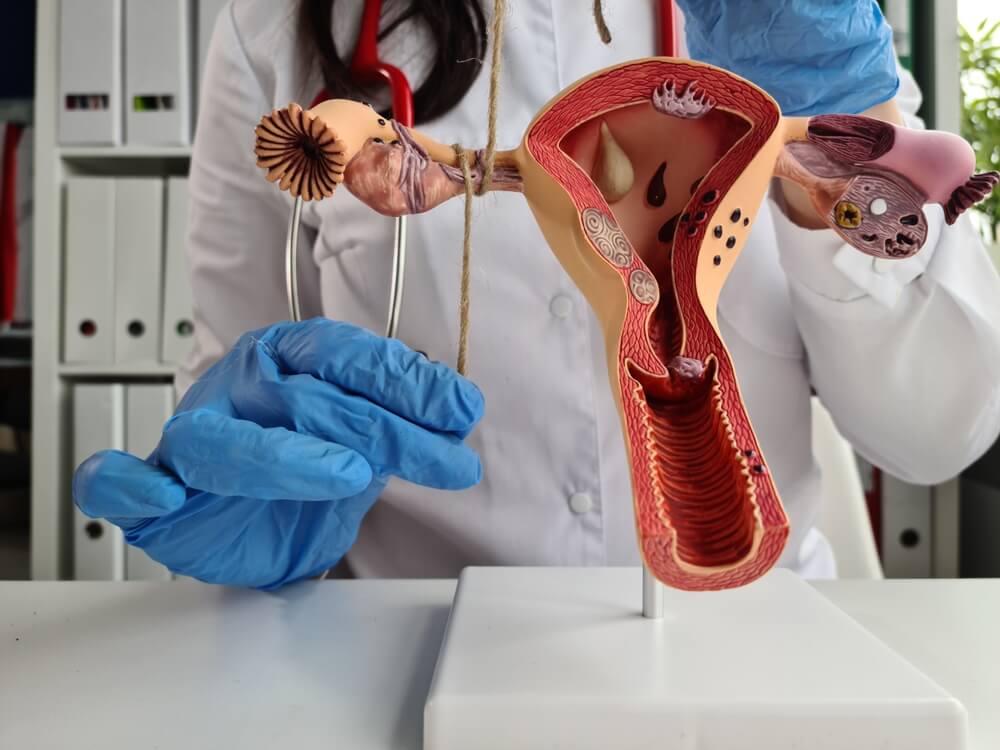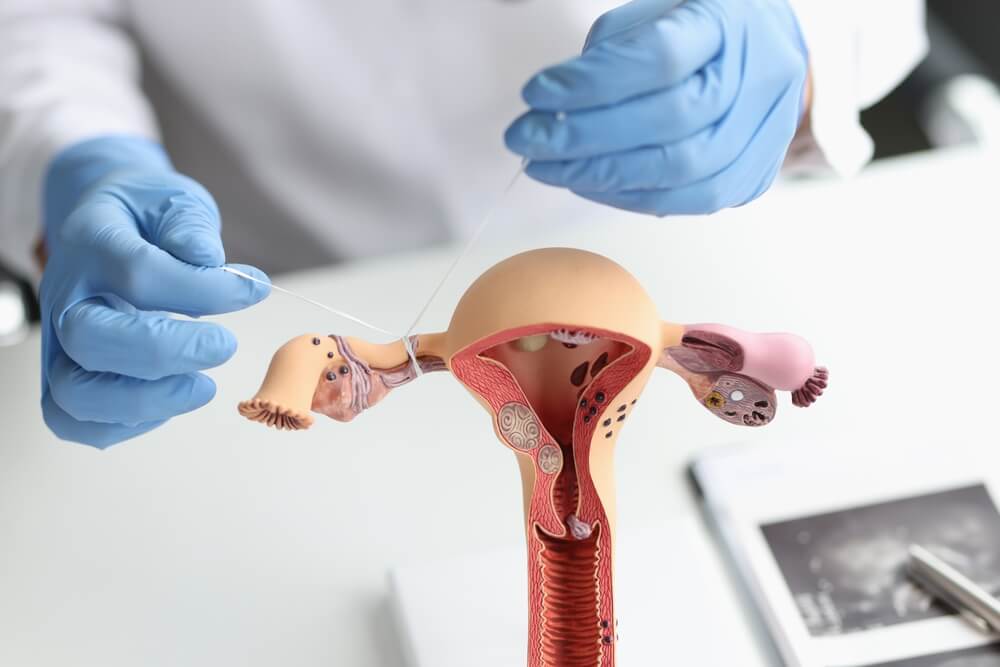Thinking of not having children? Or is your family complete? In the realm of reproductive health, making an informed decision about a permanent form of conception is paramount. One such decision that women may consider is tubal ligation – a method of permanent contraception commonly known as female or tubal sterilization. In this blog, we will share the intricacies of tubal ligation, explore the procedure, and its implications, and address common questions.
Deciding to tie your tubes, which is a permanent form of contraception, is a milestone decision. Choosing a suitable and professional gynecologist in Miami, FL, is the first step in this process. Our talented board-certified OB-GYNS at South Miami OB-GYN Associates are experts in tubal ligation and have the expertise to guide you through this decision-making process.
What is Tubal Ligation?
Tubal ligation or female sterilization, commonly known as “tying your tubes,” is a surgical procedure designed to prevent pregnancy permanently by sealing or blocking the fallopian tubes. The fallopian tubes are crucial in the reproductive process as they provide a pathway for the egg to travel from the ovaries to the uterus. During tubal ligation, a surgeon may employ various techniques, such as placing clips or rings on the tubes, cutting and sealing them, or using electrocoagulation.
This disruption in the fallopian tubes aims to prevent the sperm from reaching the egg, ultimately rendering fertilization impossible and answering the question of whether tubal ligation is permanent. Tubal ligation surgery is considered a highly effective form of women’s sterilization, offering a permanent solution for those who have decided to conclude their childbearing journey.
The procedure is typically performed through minimally invasive methods such as laparoscopy, which ensures a quicker recovery compared to traditional surgical approaches.
The Tubal Ligation Surgery Process
The tubal ligation surgery process involves a carefully orchestrated series of steps aimed at permanently preventing pregnancy by sealing the fallopian tubes. Commonly performed through laparoscopy or mini-laparotomy, the procedure begins with the administration of anesthesia to ensure the patient’s comfort.
In laparoscopy, small incisions are made in the abdomen, allowing the insertion of a thin, lighted tube with a camera (laparoscope) to guide the surgeon. Clips, rings, or other blocking devices may then be applied to the fallopian tubes, or sections of the tubes may be cut and sealed.
Alternatively, mini-laparotomy involves a slightly larger incision through which the surgeon directly accesses the tubes.
The choice of approach depends on factors such as the patient’s medical history and preferences. Both methods are designed to be highly effective while minimizing recovery time and discomfort, making tubal ligation a feasible option for those seeking a permanent form of contraception.
A consultation with your OB-GYN is essential to discuss the most suitable approach for your circumstances.
The Decision-Making Process
The decision to have your tubes tied is a deeply personal and significant step in a woman’s reproductive journey. Individuals contemplating this procedure often consider their age, overall health, and the number of children they wish to have. Understanding the permanence of tubal ligation is crucial, as it is designed to be irreversible. Open and honest communication with your OB-GYN is essential during this process, enabling women to make informed choices aligned with their goals.
Alternatives to tubal ligation, such as various non-permanent contraceptive methods, are also part of the decision-making equation. It’s essenial to weigh the pros and cons, consider personal preferences, and engage in thorough discussions with your healthcare provider as well as your significant other to ensure that the chosen path aligns with individual circumstances and aspirations. Ultimately, the decision-making process empowers women to take control of their fertility based on their unique needs and life circumstances.

Is Tubal Ligation Permanent?
Yes, tubal ligation is a permanent form of contraception. The procedure is designed to be irreversible, making it a long-term commitment to preventing pregnancy. However, it is crucial for individuals considering this option to understand the permanence of the decision.
The Benefits of Tubal Sterilization
Tubal sterilization offers several advantages. Here are some of the most common:
- Highly Effective Contraception: Tubal sterilization is a remarkably effective method of preventing pregnancy, with a success rate exceeding 99%.
- Permanent Birth Control: For individuals who have completed their family or have decided not to have children, tubal ligation offers a permanent solution to contraception.
- Hormonal Balance: Unlike some other birth control methods, tubal sterilization does not interfere with your hormonal balance. Women can maintain their natural menstrual cycles without the use of hormonal contraceptives.
- No Impact on Sexual Function: Tubal ligation has no adverse effects on sexual desire, arousal, or overall sexual function. It allows couples to enjoy a normal and fulfilling sexual relationship.
- Convenience and Peace of Mind: Once the procedure is complete, there is no need for ongoing contraception, providing a convenient and worry-free lifestyle concerning unplanned pregnancies.
- Low Failure Rate: The likelihood of failure or reversal of tubal sterilization is extremely low, adding to its reliability as a permanent contraceptive method.
Independence from Other Contraceptive Methods: Tubal sterilization eliminates the need for daily contraceptive measures, such as taking pills, using condoms, or undergoing regular injections, offering a liberating lifestyle. - Reduced Risk of Certain Cancers: Some studies suggest a reduced risk of ovarian cancer in women who have undergone tubal ligation, although more research is needed to establish a definitive link.
- Rapid Recovery: The minimally invasive nature of modern tubal ligation procedures ensures a quicker recovery compared to traditional surgical methods, allowing individuals to resume their regular activities sooner.
- Cost-Effective in the Long Run: While the initial cost of tubal ligation might be higher than some other contraceptive methods, its permanent nature makes it cost-effective over the long term, considering the ongoing expenses associated with alternative birth control options.
Does a Tubal Ligation Stop Your Period?
Contrary to popular belief, a tubal ligation does not stop your period. Women will continue to have their periods after tubal ligation. It is essential to dispel this misconception, ensuring individuals have accurate information when making decisions about their reproductive health.
The Potential Risks and Complications of Tubal Ligation.
As with any surgical procedure, tubal ligation carries some risks. These may include infection, bleeding, or injury to surrounding organs. While the overall risk is low, discussing potention complications with your OB-GYN before making a decision is crucial.
The Alternatives to Tubal Ligation
Various non-permanent alternatives exist, including birth control pills, intrauterine devices (IUDs), and hormone injections. Exploring these alternatives allows women to make informed choices that align with their reproductive goals.
Are You Considering Tying Your Tubes?
Taking control of your fertility through tubal ligation is a significant decision that requires careful consideration. Understanding the procedure, its permanence, and potential outcomes is vital in making informed choices about reproductive health.
The first step in the process is to find the right gynecologist and have an open discussion. While tubal ligation can be reveresed, it is very difficult to get pregnant after the procedure. Understanding the risks and benefits are crucial in making this life-changing experience.
As the top women’s clinic in Miami-Dade, we are here to provide services from your teenage years through menopause and beyond. Learn why South Florida women choose South Miami OB-GYN Associates as their practice of choice.
Contact us today to schedule an appointment at either our South Miami or Downtown Doral offices.




